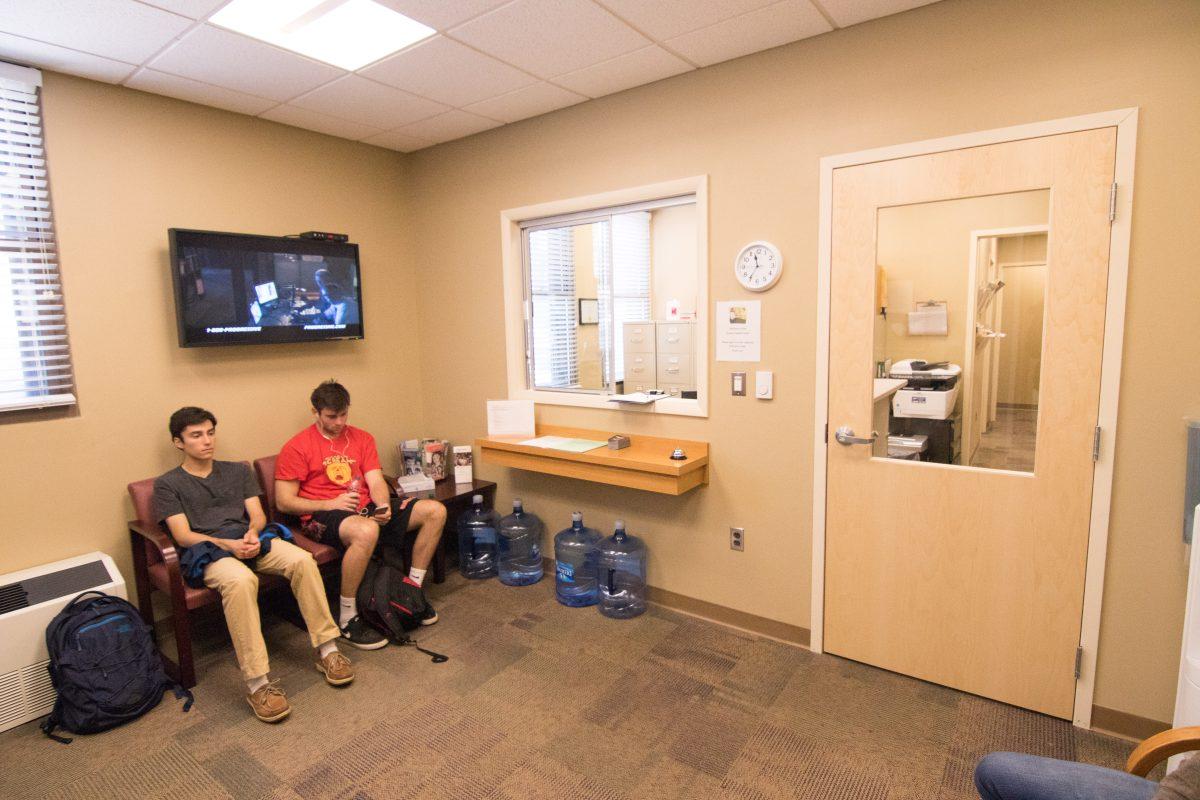After this summer’s changes in staffing, the Student Health Center is without a director or anyone with women’s health care experience.
Kiersten White, assistant vice president of Student Life, has been overseeing the Student Health Center since June and is spearheading the search process to fill the role of director.
The former director, Laura Hurst, left in June to take a position at Episcopal Academy. Hurst had women’s health care experience, White said.
“There was a point in time when we had consistency in women’s health-care medical experience, but then someone took another job,” White said.
Another former employee also provided gynecological care in addition to Hurst, but they are also no longer at the university.
When asked if the women’s health care specialist would also be replaced, White declined to comment.
“It is the university’s practice not to comment on personnel issues,” White said.
Hurst confirmed that during her tenure as director, the Student Health Center provided sexual health services, including referrals to off-campus resources.
“It is my understanding that there has been no change in the university’s commitment to providing sexual health services,” Hurst said in an email.
White said the university hopes to hire a director with experience in providing gynecological services.
“We’re in the midst of a search process and we’re committed to finding someone with women’s health care experience,” White said.
White said the position of the Director of the Student Health Center requires a candidate who has a master’s degree in Science and Nursing, is a certified Registered Nurse Practitioner (R.N.P.), has prescriptive authority, has three to five years of phlebotomy, is C.P.R. certified and is competent in urgent care procedures.
For the time being, White and the rest of the center’s staff are advising students to utilize off-campus resources for services not currently offered in the Student Health Center, which is located in Sourin Residence Hall.
According to the Student Health Center website, the following services are offered there: sexually transmitted infection testing and treatment, pregnancy testing, confidential HIV testing, problem-focused gynecological exams and Trans Care — support services including administration of hormone therapy.
White said that sexually transmitted infection testing and treatment, pregnancy testing and confidential HIV testing are still being offered at the Student Health Center. Problem-focused gynecological exams are currently referred out.
In terms of support services for trans individuals, including the administration of hormone therapy, White said in response via email, “The [Student Health Center] does not prescribe birth control.”
White is confident the location of St. Joe’s allows for students to find whatever services they need off campus.
“What I have found in working with the Student Health Center recently is that when you take a step back, you realize just how fortunate we are at St. Joe’s to be in an area that is so well resourced outside of the university,” White said. “Some of the best medical associations, urgent cares and hospitals, are in Philadelphia.”
In terms of women’s health services in particular, White said the university has “enhanced our relationship” with Lankenau Medical Center’s OBGYN care center. A member of the nursing staff at Lankenau’s OB/GYN office, however, said they did not know much about that relationship.
“We don’t know a lot about it formally, but we are happy to provide services to members of our community and St. Joe’s is part of that community,” said the nurse, who asked that her name not be used.
Seeking medical care outside the Student Health Center comes at a cost, however, even for routine care. Gynecology exams, which had been offered at the Health Center until this year, were free to undergraduate students. This year, students on the university’s United Healthcare plans can expect to pay an average cost of $64 to $111 for a visit to a gynecologist who is in-network, according to United Healthcare’s website.
The cost of co-pays involved with off-campus doctor visits have led many female students in the past to receive yearly exams and reproductive health services in the Student Health Center instead.
“A lot of people went to her [Student Health Center’s gynecologist] for their yearly checkups and STI related concerns because it was easier and more accessible,” Theresa Ta ’18 said. “When I found out we had someone at our health center specifically for women’s health, I felt good knowing that. It felt nice knowing my school cared enough to provide that service.”
Other Philadelphia-area institutions, including LaSalle and Villanova universities, offer women’s health care services, like STI testing and treatment and problem-focused gynecological exams, in their campus’ health centers.
For Abbey Piro ’19, changes to what the Student Health Center offers means waiting until Christmas break to see her gynecologist at home.
“The first time I went to the gynecologist at the Health Center was freshman year and I’ve been going at least once a year,” Piro said. “I’m from Virginia and so it’s hard for me to go home and see my gynecologist whenever I have an issue. Now, I guess I am not going to be able to go until January, which is a long time to wait when you are having an issue.”
Piro said she is unhappy that this waiting can have negative effects on a female student’s body as well as her relationship with the university.
“I think it makes female students feel less welcome and supported here,” Piro said. “If a guy can go to a doctor on campus to get their concerns addressed, why can’t I?”















































